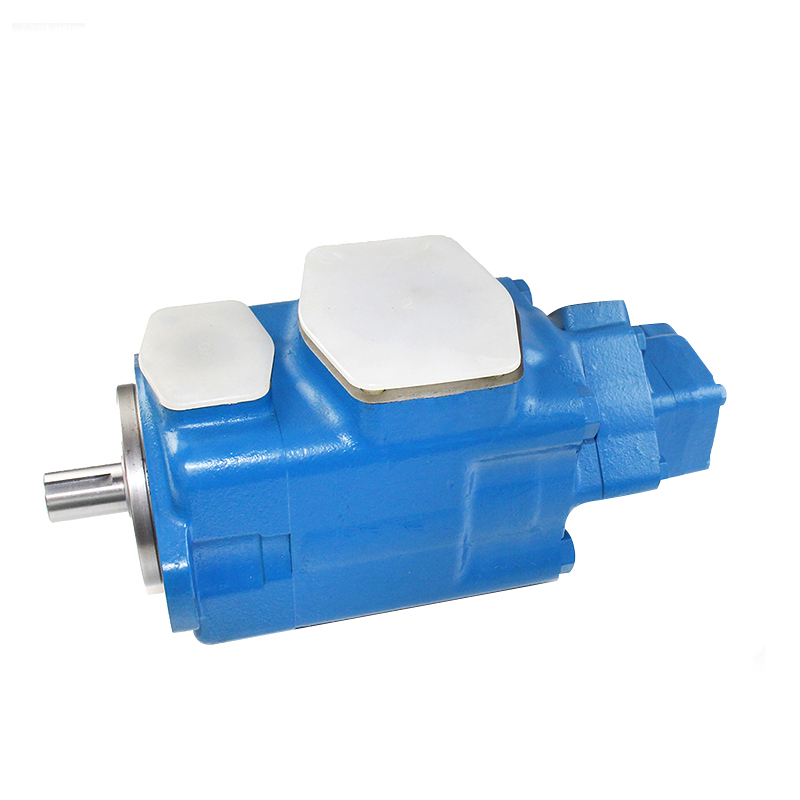Introduction
Vickers hydraulic vane pumps are widely used in various industries due to their reliability, efficiency, and compact design. To ensure these pumps operate at peak performance and longevity, it is essential to follow best practices for their maintenance and care. In this article, we will discuss how to extend the lifespan of Vickers hydraulic vane pumps by optimizing their operation, reducing wear and tear, and minimizing the need for costly repairs or replacements.
Regular Maintenance and Inspections
One of the most important steps to extending the life of a Vickers hydraulic vane pump is performing regular maintenance and inspections. This ensures that any early signs of wear or damage are detected before they result in more serious issues. Here are some key maintenance practices:
- Check the fluid levels regularly to ensure optimal performance.
- Inspect the filter regularly and replace it if necessary to prevent contaminants from entering the pump.
- Check for leaks and ensure all seals are in good condition to prevent fluid loss and contamination.
- Ensure the pump is aligned correctly to avoid unnecessary strain on components.
Proper Fluid Selection and Management
The type of hydraulic fluid used in the system plays a crucial role in the lifespan of the Vickers hydraulic vane pump. Using the wrong fluid or contaminated fluid can lead to increased wear and corrosion of the pump components. Here’s how to optimize fluid management:
- Choose the right hydraulic fluid based on the pump’s specifications and operating conditions.
- Regularly check the fluid’s cleanliness and replace it as necessary to maintain pump performance.
- Ensure that the fluid is at the correct temperature to avoid viscosity problems that can cause pump inefficiency.
Optimizing Operating Conditions
Operating conditions significantly affect the performance and longevity of hydraulic vane pumps. To reduce unnecessary wear and tear, consider the following tips:
- Avoid running the pump at excessive pressures, as this can cause overheating and premature failure.
- Ensure that the system’s pressure settings are aligned with the pump’s rated specifications.
- Keep the system clean and free of contaminants, as dirt and debris can accelerate wear on the pump’s internal components.
- Monitor the pump’s operational temperature to ensure it does not overheat, which can lead to system failure.
Using Proper Load and Speed Management
Managing the load and speed at which the Vickers hydraulic vane pump operates is critical for extending its lifespan. Overloading the pump or operating it at excessively high speeds can result in premature wear. Here’s how to manage load and speed:
- Ensure that the pump is not subjected to excessive loads that exceed its rated capacity.
- Avoid high-speed operation unless necessary for specific tasks, as this can increase the wear rate of internal components.
- If possible, reduce load fluctuations to prevent stress on the pump.
Proper Installation and Alignment
Improper installation and misalignment can cause the pump to operate inefficiently and wear out prematurely. Proper installation involves not only ensuring the correct positioning of the pump but also making sure that all connections are secure and free of obstructions. Consider these guidelines:
- Ensure the pump is correctly aligned with the drive shaft to prevent unnecessary mechanical stress.
- Use vibration-damping materials where appropriate to reduce the impact of vibrations on the pump.
- Check all hoses and connections for leaks and secure fittings to avoid unnecessary fluid loss and contamination.
Regular Monitoring and Early Detection
One of the most effective ways to extend the lifespan of a Vickers hydraulic vane pump is through continuous monitoring. Regularly monitoring the system allows you to detect any irregularities in performance, which can then be addressed before they cause major problems. Key monitoring practices include:
- Monitor the pump’s operating temperature, pressure, and flow rate to detect any signs of malfunction.
- Install condition monitoring equipment such as vibration sensors or temperature sensors to track performance in real-time.
- Perform regular system diagnostics to identify potential issues before they require major repairs.
Conclusion
By following the above practices, you can significantly extend the lifespan of your Vickers hydraulic vane pump. Regular maintenance, proper fluid management, and optimizing operating conditions are all crucial for ensuring that the pump continues to perform at its best. Additionally, early detection of issues and proper installation will help prevent costly repairs or replacements, ultimately maximizing the value and performance of your hydraulic system.


 English
English русский
русский Español
Español عربى
عربى

